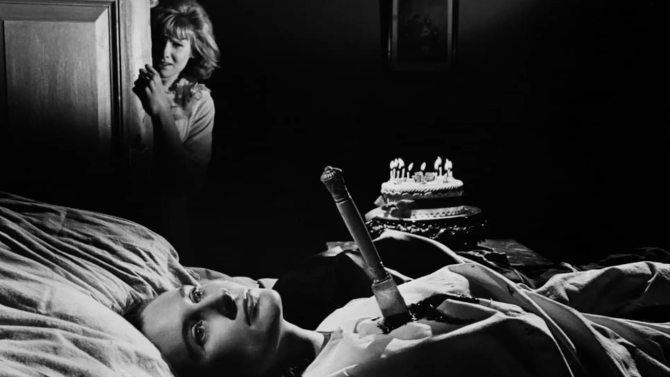
Night Terrors
Unlike most other memorable Hammer horror movies, the 1964 mystery thriller Nightmare, directed by Freddie Francis (perhaps better known as the cinematographer of films like David Lynch’s The Elephant Man and Martin Scorsese’s Cape Fear) eliminates all of the monsters for an old fashioned quasi ghost story... the piece deserving to be remembered up there with those Hammer horror films centered on vampires, resurrected corpses, and lycanthropes. Shot in shadowy black and white, the story follows struggling seventeen year old Janet (Jennie Linden), who is currently away from home living at a finishing school for girls.
-
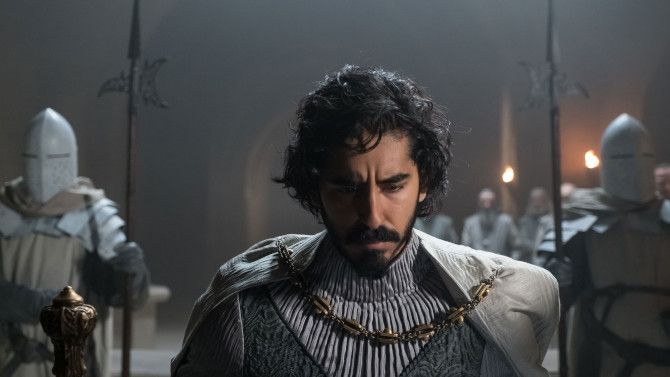
Fly By Knight
The Green KnightJanuary 10, 2022Fabled reverberations of distant past, a time when magic still filled the air... and men would quest to prove their knightly virtues, are brought to vivid life in writer/director David Lowery’s 2021 Arthurian era legend, The Green Knight. Almost ethereal in its nature – not due to some sort of fragility, but rather because it feels as if it is transcendent of this time... a wisp of lore echoing from distant past that ought be lost at the merest blink of an eye, it is akin to being transported back into a magic-tinged Medieval landscape. Lowery deserves much credit for brewing such a mythical auratic atmosphere. It is no easy feat being an Arthurian laureate, for you must know the earliest records dating back to Geoffrey of Monmouth in the twelfth century, through the long annals...
-
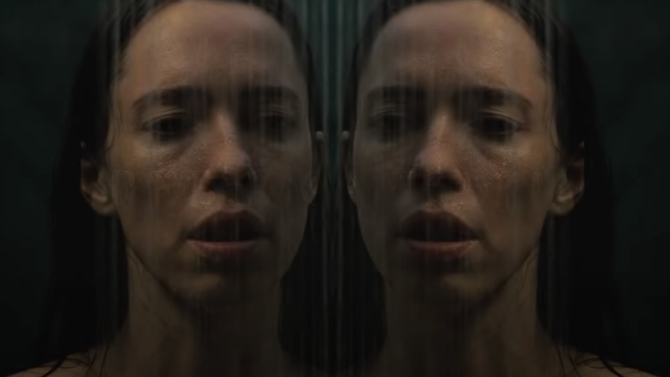
Home Is Where the Dark Is
The Night HouseOctober 27, 2021Almost as if Sigmund Freud, Edgar Allan Poe and Alfred Hitchcock got together to make a movie (Roman Polanski could probably be thrown into the group for good measure), 2020's The Night House lives in the realm of the double, the uncanny, as well as the horror found in grief and the chasm of nothingness it can bring with it. Written by Ben Collins and Luke Piotrowski, and directed by David Bruckner, the story follows teacher Beth (Rebecca Hall), the audience joining her immediately after the suicide of her husband, Owen (Evan Jonigkeit). Living in a bluff-top lake house that he himself built (the reflective water perhaps the first indication of the double), she might as well be out at sea. . . though she might not want that, as Owen killed himself on the water. And, when the darkness of night comes, Beth’s world feels like an encased glass tomb.
-
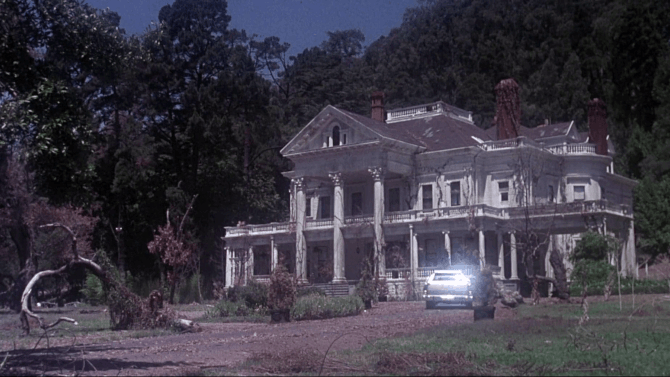
Extreme Makeover: Haunted Home Edition
Burnt OfferingsAugust 10, 2021Ah, the summer rental. . . a long held tradition that holds within it the unique ability to escape the intense grind of day to day life, allowing renters to find peace and quiet, comfort, family bonding, with some oft beautiful site-seeing along the way. But sadly, this isn’t always how it turns out. . . case in point, 1976's Burnt Offerings, co-written and directed by Dan Curtis (based on the novel of the same name by Robert Marasco). The Rolf’s, author Ben (Oliver Reed), his wife Marian (Karen Black), their tween son David (Lee Montgomery), and Ben’s artsy aunt, Elizabeth (Bette Davis), are fortunate enough to have found a stunning (if dilapidated) 19th century mansion to rent for the all-too-good price of nine hundred dollars – yes, for the entire summer! The only caveat that is added by owners Arnold and Roz Allardyce (Burgess Meredith and Eileen Heckart), is that their elderly private mother, who is in her mid eighties, is going to stay in her attic flat. . . and it will be their job to bring her a tray of food for each meal (though due to her reclusive state, they are required to leave the food outside her door).
-
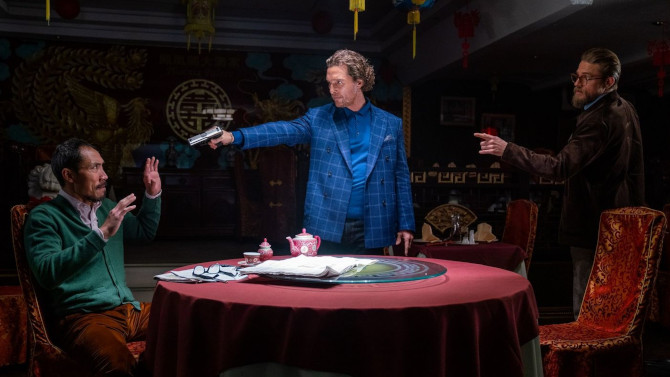
Ritchie Rich
The GentlemenFebruary 19, 2021A return to his roots after more than a decade making big budget studio pictures, Guy Ritchie’s The Gentlemen (2019), recaptures that unique mixture of crime and comedy (all done in a hyper-stylized visual way) that put him on the map back in 1998 with Lock, Stock and Two Smoking Barrels (the successful follow up Snatch would come in 2000). If you don’t like Ritchie’s visual style and Limey-centred crime stories, then this likely won’t win you over, but if you’ve missed his unique method of film making since his last gangster flick (2008's RocknRolla), this one should feel as comfortable as a finely made bespoke suit.
-

Turning Back Time
TenetAugust 30, 2020A title with so many connotations – of course, it speaks to the fascinating time tinkering found in Christopher Nolan’s new film Tenet, but it also refers to a pre-Covid time. . . a place where people nonchalantly made the trek to movie theatres where packed crowds would communally enjoy the newest blockbusters. Whether Tenet will be able to turn back time and safely fill cinemas during this new normal is yet to be seen. A mesmeric and visually stunning spectacle that finds Nolan playing within his favourite themes, Tenet is clearly self-indulgent, yet not to its own detriment. Following up works like Memento, The Prestige, Inception, Interstellar, and, to a lesser degree, Dunkirk, Tenet, for lack of a better description, is a sort of password. . . an entry by fire into a small group of people who are attempting to prevent World War III. It is a CIA agent simply known as The Protagonist (John David Washington – BlacKkKlansman), who is introduced into this precarious, mind-bending new world.
-
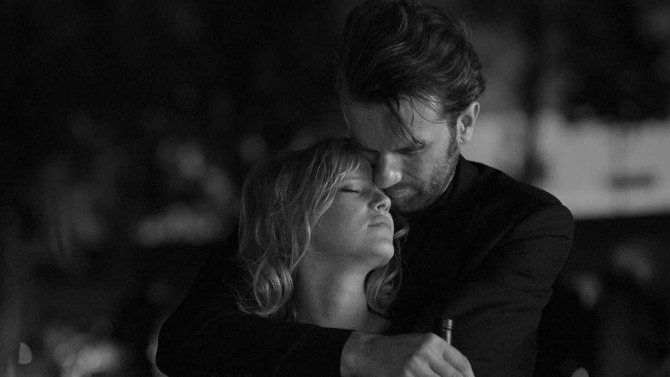
Some Like It Cold
Cold WarApril 26, 2020It is likely that any other year, outside of 2018, would have meant that a second one of Pawel Pawlikowski’s films would have won Best Foreign Language Film at the Academy Awards (the other is 2013's Ida). Instead, Alfonso Cuarón’s Roma (in its own right, a truly visionary film) froze out Cold War. Though this Polish export did achieve a nomination in the above mentioned category, as well as receive nods for Best Achievement in Directing and Best Achievement in Cinematography, it, in many ways, got overshadowed by another black and white foreign film released the exact same year. . . which is truly a shame. Set in post-war Poland – 1949, to be exact, Wiktor (Tomasz Kot), a very bourgeoisie musician (a dynamo who can play the piano, as well as write and arrange music) – bold, confident, and gifted, tours the countryside, recruiting the most talented teens and twenty somethings for a folk music ensemble that will tour Poland and the rest of the Eastern Bloc. One of the finds, Zula (Joanna Kulig), an undaunted singer, may not be the most pure talent, though she has that certain ‘je ne sais quoi’. With a mystifying persona, she is spark plug, femme fatale (both director and actress inspired by Lauren Bacall and her sarcastic delivery), and, somehow, ingénue. Wiktor has found his muse. . . love at first sight. . . the genesis of a change that you can never return from. A love affair blossoms.
